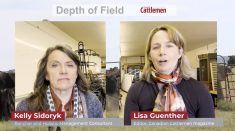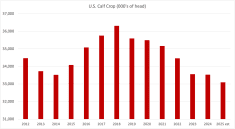We often hear and use the term “stupid” without understanding what stupid really means and the negative connotation stupid can have on those it might be directed toward. In its simplest form stupidity describes behaviour that shows a lack of good sense or judgment. One need not search far to understand why human beings are stupid. It is simply because they are human beings.
In 1976, Carlo Cupola, professor of economic history at the University of California, Berkeley, published an essay outlining the fundamental laws of a force he perceived as humanity’s greatest existential threat: Stupidity. Stupid people, in Cupola’s estimation, share several identifying traits: they are abundant, they are irrational and they cause problems for others without apparent benefit to themselves. Stupid people lower society’s total well-being. There are no defences against stupidity, argued the Italian-born professor. The only way a society can avoid being crushed by the burden of its idiots is if the non-stupid work even harder to offset the losses of their stupid brethren.
Cupolla’s five basic laws of human stupidity follow:
Read Also

Improving soil health on the ranch
Yamily Zavala, PhD, talks soil health for farmers and ranchers at a grazing club field day at Paradise Hill, Saskatchewan.
Law 1: Everyone underestimates the number of stupid individuals in circulation. The problem is compounded by biased assumptions that certain people are intelligent based on superficial factors such as their job and education level — other traits we believe to exclude stupidity. They don’t.
Law 2: The probability that a certain person is stupid is independent of any other characteristic of that person. Stupidity is a variable that remains constant across all populations. There are stupid college professors. There are stupid people at Davos and the UN General Assembly. There are stupid people everywhere, in every nation on earth.
Law 3, the “Golden Law” of stupidity: A stupid person is one who causes problems for others without any clear benefit to himself or herself. Law 3 introduces three other phenotypes that co-exist alongside stupidity. First, there is the intelligent person, whose actions benefit both themself and others. Then there is the bandit, who benefits themself at an other’s expense. And last, there is the helpless person, whose actions enrich others at their own expense.
Law 4: Non-stupid people underestimate the damaging power of stupid individuals. Non-stupid people forget association with stupid people turns out to be a costly mistake. We underestimate the stupid and we do so at our peril.
Law 5: A stupid person is a dangerous person. Essentially, stupid people are dangerous and damaging because reasonable people find it difficult to understand unreasonable behaviour. A stupid person will harass you for no reason, for no advantage, without any plan and at the most improbable times and places. You have no rational way of telling if and when and how and why they attack. When confronted with a stupid individual, you are completely at their mercy.
Stupidity in many people’s minds isn’t completely owned by humans. According to Baxter Black, “My dad told me cows are stupid, that’s why we eat them” (From the Edge of Common Sense: Cow Stupidity). I thought that was philosophical genius! Right there in front of our eyes, akin to Columbus suddenly realizing that the earth was round or a six-year-old discovering he can burp on command! One of those moments when a person sees there really is a master plan in the universe.
I hear story after story about men trying to outsmart cows. Temple Grandin has built a fine reputation for defining and manipulating cow behaviour — but her techniques do not depend on a cow’s intelligence. It’s about flow.
To avoid devastating situations for both animals and farms, it is essential to protect the physical and psychological well-being of farm animals. By promoting welfare, we allow normal behaviour and maximize production. However, stupidity has a way of creeping in. Some producers consistently underfeed animals or fail to provide adequate housing and somehow rationalize it as normal. Although industry has worked hard to fix the glitches in animal transport, there are still individuals who pay no attention. There will always be those who work against their own interests, compromising long-term viability by being incredibly stupid and small-minded.
Corporate and government complicity are never far away. In the food safety realm, government inspection programs that remove adequate oversight and inspection responsibilities have allowed plants to inspect themselves. E. coli contamination, which has happened in plants across North America, seems highly predictable.
Avoiding stupidity is easier than seeking brilliance. One of the ways Charlie Munger — an American billionaire investor, businessman and former real estate attorney — has tried to avoid making stupid decisions is by sticking to his circle of competence. By doing so, he avoids the common traps of sloppy thinking.
Helpful hints for avoiding stupidity:
- Recognize your blind spots. There is a tendency to deny flaws in our own thinking.
- Be ready to eat humble pie. Never be ashamed to admit being wrong.
- Argue with yourself and don’t pull the punches.
- Imagine “what if…” It may sound fanciful, but the point is it forces you to consider different eventualities.
- Don’t underestimate your checklist. At the Johns Hopkins Hospital, for instance, a list of five bullet points reminding doctors of basic hygiene reduced 10-day infection rates from 11 per cent to zero.
















